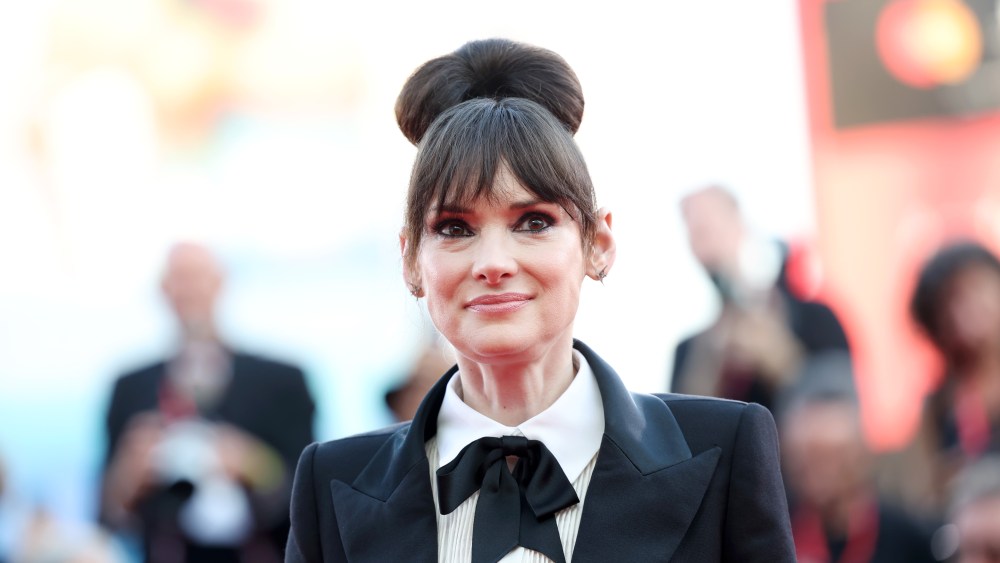It’s a shame it isn’t discussed in the article, but I wonder “What about TV?”
I watch a lot more TV shows than I do films, not just because TV is longer but usually TV has the more interesting story to tell.
That isn’t to say films aren’t interesting, it’s just that I wonder if the shift is the dividing line between generations. Films were where all the big stars were. TV was seen as a stepping stone. Now TV has a similar and sometimes even higher level of prestige.
The article does touch on length for a moment, but doesn’t dig in. When it comes to TV you might only need to watch 22 minutes, 44 minutes, maybe an hour to get a solid feel for where the story is going. Plus it has a logical stopping point.
For a film you might get 20 minutes in but you’re not sure. Should you stick with it? I suppose better films aren’t usually this way, but should you watch just a little more and find out?
Both have their place. Both can be great.
usually TV has the more interesting story to tell.
Hard disagree. I have always thought that movies have had stronger stories due to the fact that they have a much more focused story to tell. TV shows have a lot more time to fill, which leads them to bringing in random B-plots that often end up as distractions from the main story rather than supporting detail. The investment that a TV show demands is often not worth it in my experience, because 9/10 times the show loses steam before they can tie up the plotlines I care about. For every Breaking Bad, there are a ton of Yellow Jackets, Westworlds, etc. I find it much easier to curate a list of movies than a list of shows.
As budgets have increased to crazy abouts it has felt like tv shows have become stretched out movies that would have been better off as movies. It’s made even worse by how more TV shows despite production values being high have felt like filler and then have a two year long gap on top of it.
Miniseries are ones that haven’t felt that way for me lately.
I found those random b plots often do a lot better at providing character building then the constant ramp up of needing to focus solely on moving the serial plot along.
Then again, I’m also the kind of person who preferred the “monster of the week” episodes of X-files over the “main story” ones. The latter always just seemed so forced, while the former allowed them to relax into the characters.
I actually prefer shows that have smaller stories to tell throughout rather than one large story, so we actually agree here. In these cases if the show loses quality at any point, then I can stop watching without leaving as much plot development unresolved. The downside is now you’re either confining each story to a smaller runtime or you’re chopping up a larger plotline into these smaller runtime units.
I suppose this is how I would put it: TV shows are a superior format for character development through smaller storylines. This is why Breaking Bad works so well. Sure you could say it’s one large story told across multiple seasons, but the way it is told is through smaller stories that can almost stand on their own. The larger story isn’t so much a story but one really long thread of character development of Walter. Movies have a disadvantage with character development due to the lower total runtime, but the singular story ends up more rich. One 2hr movie can often feel more satisfying that several hours of a TV show due to how little the viewer needs to invest both mentally and time-wise. That said, there are exceptions to these generalities I’m making, and I’m not exactly an expert when it comes to either of these mediums.
I think the exact opposite. Shows run for so many hours that they’re often filled with fluff melodrama. I call it the Dragonball Z writing.
Movies have such a shorter amount of time, so they have to make it with more care. They don’t want to waste your time. Every minute is precious
I do agree that some TV shows stretch and pull the DBZ style, however I think it’s less and less. Seasons are shorter, 10 episodes or so, but it isn’t a strict rule.
I also prefer tv shows just because there’s more time for proper story telling and character development.
If I watch a movie and the main characters fall in love within a week of meeting each other it kind of drives me nuts.
I also prefer tv shows just because there’s more time for proper story telling and character development.
This is why the Netflix Marvel shows are better than most of the MCU movies. They usually spend an episode fleshing out the villain and the villains having a good backstory makes an interesting story overall. The MCU did a good job telling us about Thanos because they didn’t have to introduce anyone else during that saga.
It’s a job? But still a little puzzling tbh
It’s not just a job though.
I don’t think any ‘writer’ who doesn’t read is writing anything worth reading. Same thing here.
Better actors (and directors) learn from others and it’s hard to do that when you’re not even interested in watching movies.
Winona herself is a movie nerd.
How is it not a job? They aren’t acting for fun. They aren’t amateurs.I misread, you said not “just” a job. The rest of my response still applies.
In every job there are people who are passionate about it and take the work back home - but they don’t consider it work because it was their hobby / passion to begin with. There are teachers who will go continue going to conferences, get certificates, take additional courses, stay up to date on the latest pedagogic research, and so on. Same for midwives, engineers, wood-workers, bricklayers, and so on.
For many, the vast majority I’d say, a job is a job. You go in, do the work, get paid, get out, and move on to another activity after work.
Gez Z didn’t grow up with watching movies. They grew up on social media. Cinematic story telling isn’t something they’re farmilur with as a form of daily entertainment.
I don’t blame them for this. But it definitely shows in their work. Their own generation aren’t interested in their stuff, by and large. Sure, there’s some that watch and enjoy it but the audience they’re putting this out to who are actually interested are older. And they see their work as it is - not as good as past efforts by generations before Gen Z.
It’s why the film industry is drowning right now. There is an audience still there for film. But the majority of it isn’t Gen Z. And that’s the problem. There lies the disconnect.
If you want Gen Z attention and dollars, the film industry isn’t where you should be aiming your sights at. Because they aren’t the audience for film. Which obviously means, you should cater the film industry to the audience THAT IS ALREADY THERE.
And that ain’t Gen Z…
Gen-Z and later generations have brainrot caused by social media.
* and earlier generations. Especially earlier generations.
Delulu comment. iPad kids have issues with attention span and you shouldn’t ignore it.
You should see old folks scrolling Facebook. They’re lost.
They’re not the future generations with still developing brain.
Nah, they’re the current generation making all the important decisions for the rest of society.
Boomers have lead poisoning, which is the real brain rot.
Not to mention the pc culture…and the endless need to feel special and liked on social media.
To me they are all inside the matrix and don’t even realize it.
Stfu console peasant
So you tell the only person that agrees with you to shut the fuck up… 🤔
deleted by creator












